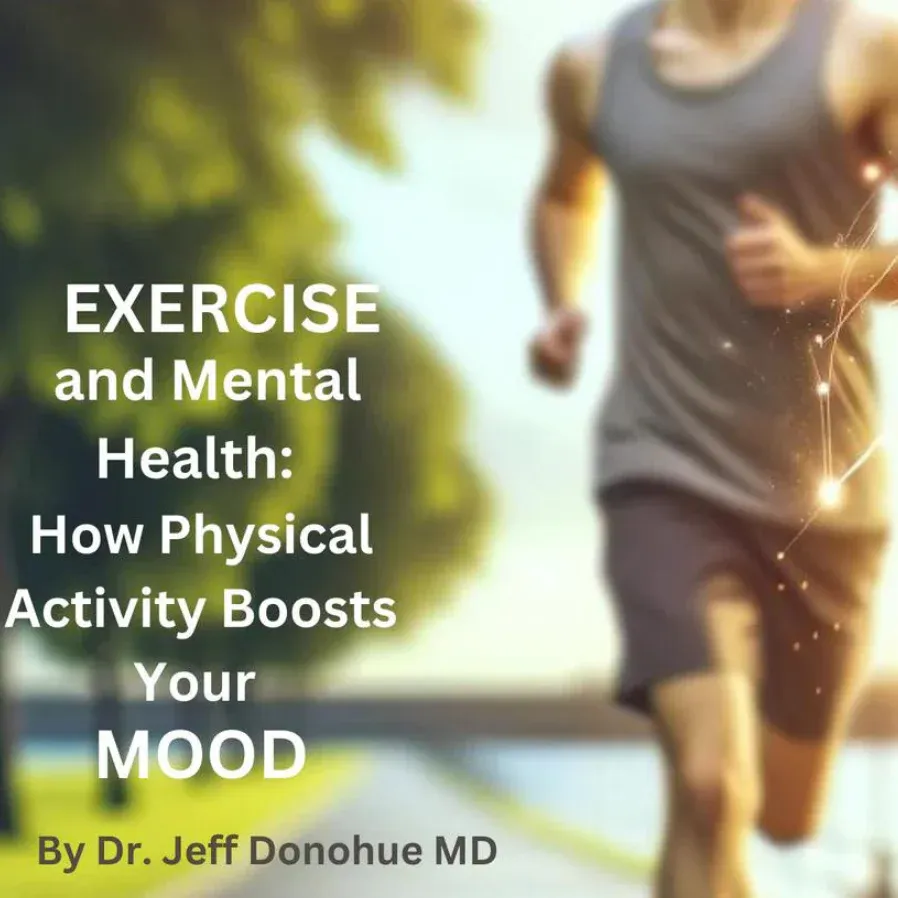Exercise and Mental Health: How Physical Activity Boosts Your Mood

In today’s fast-paced world, maintaining mental health is as crucial as physical health. One of the most effective ways to enhance both is through regular physical activity. Exercise has been shown to improve mood, reduce anxiety, and combat depression. As a specialist in Clinical Endocannabinoid Deficiency (CECD), I’ve seen how balancing the Endocannabinoid System (ECS) and incorporating cannabinoids can further support recovery from exercise and boost overall well-being.
The Connection Between Exercise and Mental Well-being
Exercise stimulates the release of endorphins, often referred to as “feel-good” hormones, which can alleviate stress and promote a sense of happiness. Additionally, physical activity increases blood flow to the brain, encouraging the release of neurotransmitters like serotonin and dopamine that are crucial for mood regulation.
Benefits of Regular Exercise
- Improved Mood: Engaging in regular physical activity can significantly reduce symptoms of depression and anxiety, leading to an overall improvement in mood.
- Enhanced Cognitive Function: Exercise has been shown to enhance brain function, improving memory, attention, and problem-solving skills.
- Stress Reduction: Physical activity helps to lower cortisol levels, the body’s primary stress hormone, thereby reducing stress.
- Better Sleep: Regular exercise promotes better sleep quality, which is essential for mental health.
- Increased Energy Levels: Exercise improves cardiovascular health and muscle strength, leading to higher energy levels throughout the day.
Incorporating More Activity Into Daily Life
Making time for physical activity can be challenging, but here are some practical tips to incorporate more movement into your daily routine:
- Start Small: Begin with short sessions of exercise, such as a 10-minute walk, and gradually increase the duration and intensity.
- Set Realistic Goals: Aim for achievable goals that fit your lifestyle, such as 30 minutes of moderate exercise five times a week.
- Find Activities You Enjoy: Whether it’s dancing, swimming, cycling, or yoga, choose activities that you find enjoyable to stay motivated.
- Make It Social: Exercise with friends or join a fitness class to make physical activity a social event.
- Integrate Movement Into Your Day: Take the stairs instead of the elevator, walk or bike to work, or do some stretching during TV commercials.
The Role of Cannabinoids in Exercise Recovery
Balancing the ECS can significantly enhance the benefits of exercise. Cannabinoids, such as those found in CBD, interact with ECS receptors to promote recovery and reduce inflammation. This interaction may help alleviate muscle soreness, improve sleep quality, and enhance overall recovery after intense physical activity.
For those interested in supporting their exercise regimen with natural solutions, I recommend visiting KokuaVida.com. Here, you can find doctor-formulated CBD products designed to aid in recovery and promote a balanced ECS, helping you get the most out of your workouts.
Conclusion
Exercise is a powerful tool for boosting mental health and overall well-being. By incorporating regular physical activity into your daily routine and exploring the benefits of balancing the Endocannabinoid System, you can enhance your mood, reduce stress, and improve your quality of life. As a specialist in CECD, I encourage a holistic approach to health, recognizing that both physical and mental well-being are essential for a fulfilling life.



